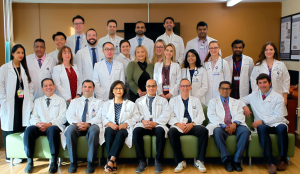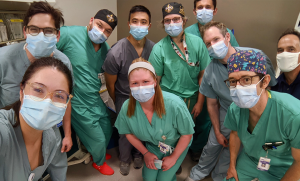While certain medical residencies tend to offer higher salaries than others, pinpointing the absolute highest-paid residency can be challenging due to the fluctuating nature of compensation structures across specialties and regions.
However, some medical specialties tend to offer higher average salaries during residency due to various reasons, including longer training periods, higher demand, and higher stakes. Neurosurgery, orthopedic surgery, radiology, and anesthesiology are among the medical specialties known for potentially higher compensation during residency.
Neurosurgery Residency:

Neurosurgery is a highly specialized field dealing with the surgical treatment of conditions affecting the nervous system. Due to its complexity and demanding nature, neurosurgery residencies often offer higher salaries. However, this comes with longer training periods, intense work hours, and rigorous educational demands.
Orthopedic Surgery Residency:

Orthopedic surgery focuses on the musculoskeletal system and involves treating injuries and diseases related to bones, muscles, ligaments, and joints. Residents in this specialty may receive relatively higher compensation due to the demanding nature of the field and the extensive training required.
Radiology Residency:

Radiology involves using medical imaging techniques for diagnosis and treatment. Radiologists are in high demand due to their critical role in diagnosis, leading to potentially higher salaries during residency.
Anesthesiology Residency:

Anesthesiologists play a crucial role in surgeries by administering anesthesia and managing patients’ pain during procedures. This specialty often offers competitive compensation during residency due to the critical nature of the work.
Factors influencing residency pay include geographical location, with certain regions or urban areas offering higher salaries to attract talent. Additionally, the prestige and reputation of the hospital or medical institution where the residency takes place can impact compensation.
It’s important to note that while these specialties might offer relatively higher salaries during residency, they come with extensive work hours, high levels of stress, and demanding training requirements.
Moreover, compensation for medical residents can also vary annually, subject to changes in healthcare policies, institutions’ budgets, and negotiations between hospitals and resident associations.
The pursuit of a medical specialty should not solely be based on potential income during residency. Personal interest, aptitude, passion for the field, and long-term career goals should weigh heavily in the decision-making process.
Medical residents typically dedicate several years to training and sacrifice personal time and energy to become proficient in their chosen field. Ultimately, the passion for medicine and the desire to serve patients should remain central when selecting a medical specialty, even if the compensation during residency varies across different specialties.



